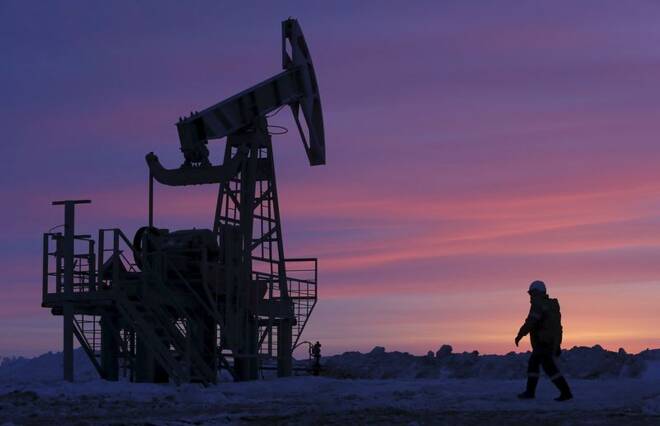Advertisement
Advertisement
Russia’s Jan-Nov oil output up 2% ahead of EU ban, price caps
By:
(Reuters) - Russia's January-November oil and gas condensate rose 2.2% from a year earlier to 488 million tonnes, the Interfax news agency said on Tuesday, citing Deputy Prime Minister Alexander Novak.
MOSCOW (Reuters) – Russia’s January-November oil and gas condensate production rose 2.2% from a year earlier to 488 million tonnes, the Interfax news agency said on Tuesday, citing Deputy Prime Minister Alexander Novak, who expects a slight output decline following new sanctions.
European Union countries that have been primary buyers of Russian crude for decades stopped buying it from sea ports from Dec. 5 under an embargo imposed by the bloc.
The Group of Seven nations, Australia and the 27 EU states have also introduced a $60 per barrel price cap on Russian oil.
Russia’s oil and gas condensate output from January to November averaged 10.91 million barrels per day, according to Reuters calculations.
Speaking to reporters later on Tuesday, Novak said Russian oil will still be in high demand following the sanctions.
“Global consumption, economic growth in the world must be provided with energy resources. There is not much oil in the world, and Russian oil has always been and will be in demand. Yes, supply chains will change. Nevertheless, we do not see any tragedy in this,” Novak said according to Interfax.
He also said that Russia may cut its oil production amid the uncertainty.
“I don’t think the volumes (of decline) will be big. Nevertheless, we do not rule this out, although we are doing everything to ensure that the situation is stable,” Novak was quoted as saying by TASS news agency.
Company sources told Reuters that Russian oil output could fall by 500,000 to 1 million barrels per day early in 2023 after the EU ban.
The Kommersant daily citing sources on Tuesday reported Russia’s November output averaged 1.486 million tonnes (10.89 million barrels) per day, up 2% from October.
The newspaper said output was buoyed by the resumption of production at the offshore Pacific Sakhalin 1 project, formerly led by ExxonMobil, which abandoned it after Moscow sent troops into Ukraine in February.
(This story has been refiled to add the dropped word production in paragraph one)
(Reporting by Reuters; editing by Guy Faulconbridge, Jason Neely and Louise Heavens)
About the Author
Reuterscontributor
Reuters, the news and media division of Thomson Reuters, is the world’s largest international multimedia news provider reaching more than one billion people every day. Reuters provides trusted business, financial, national, and international news to professionals via Thomson Reuters desktops, the world's media organizations, and directly to consumers at Reuters.com and via Reuters TV. Learn more about Thomson Reuters products:
Latest news and analysis
Advertisement
